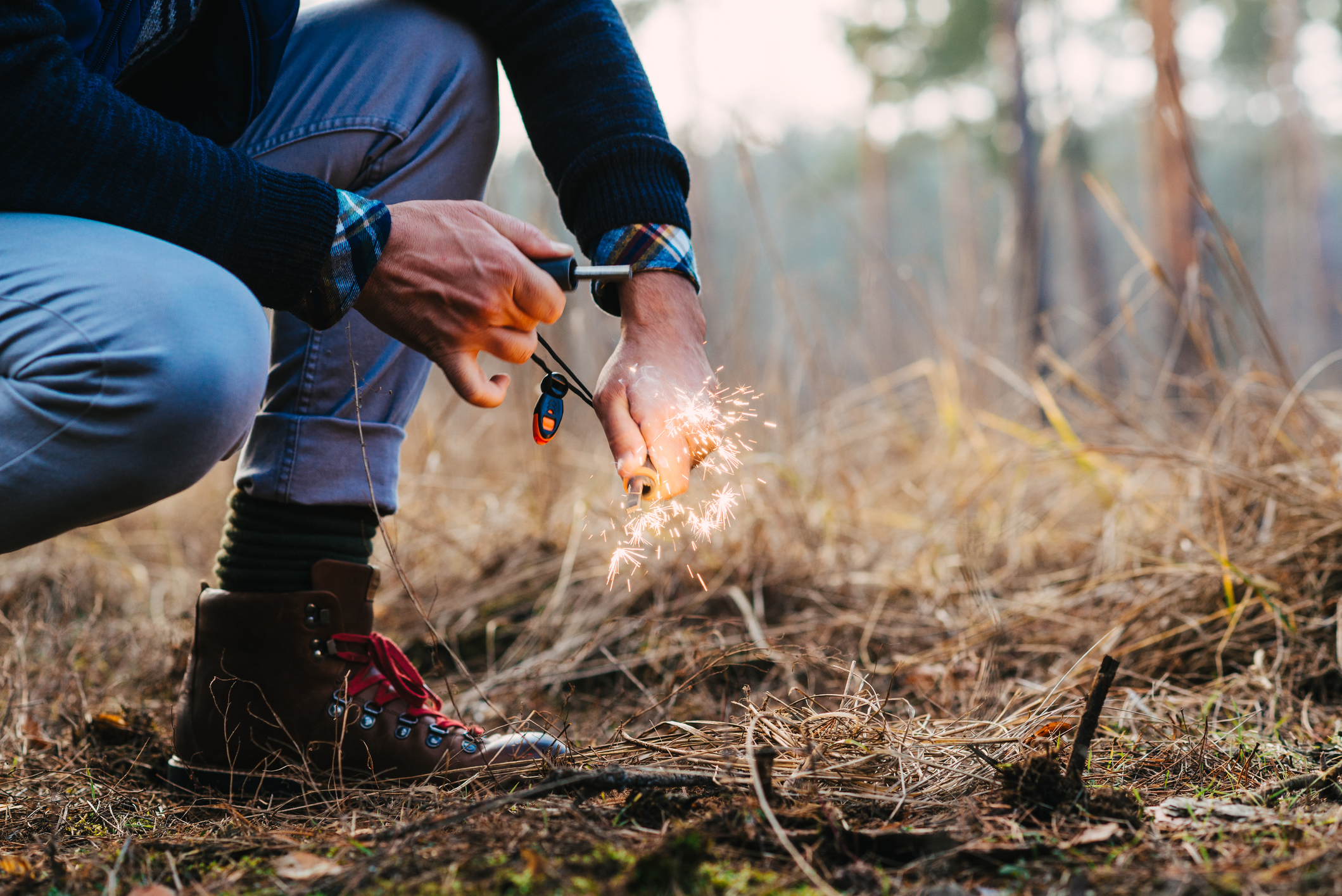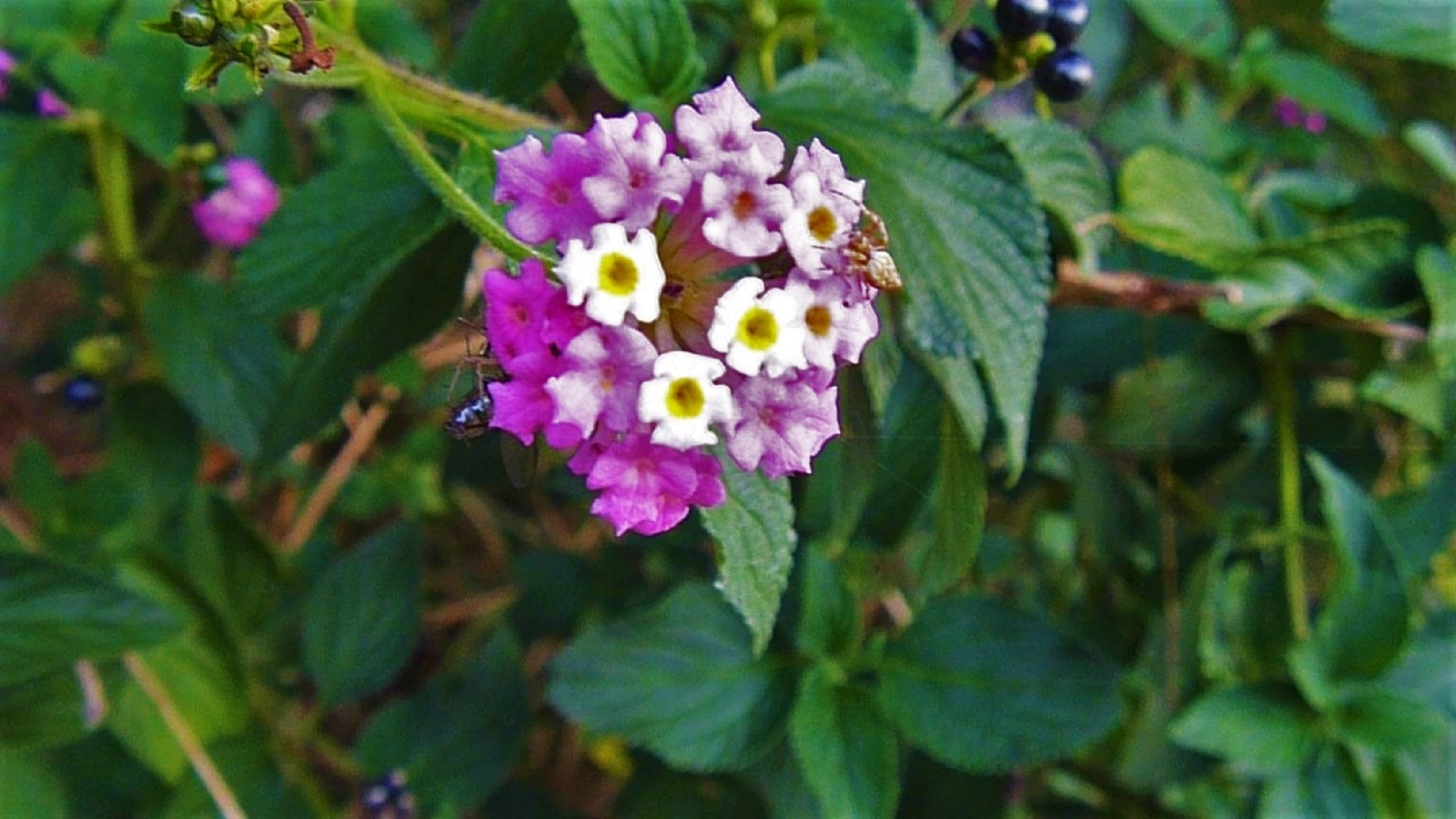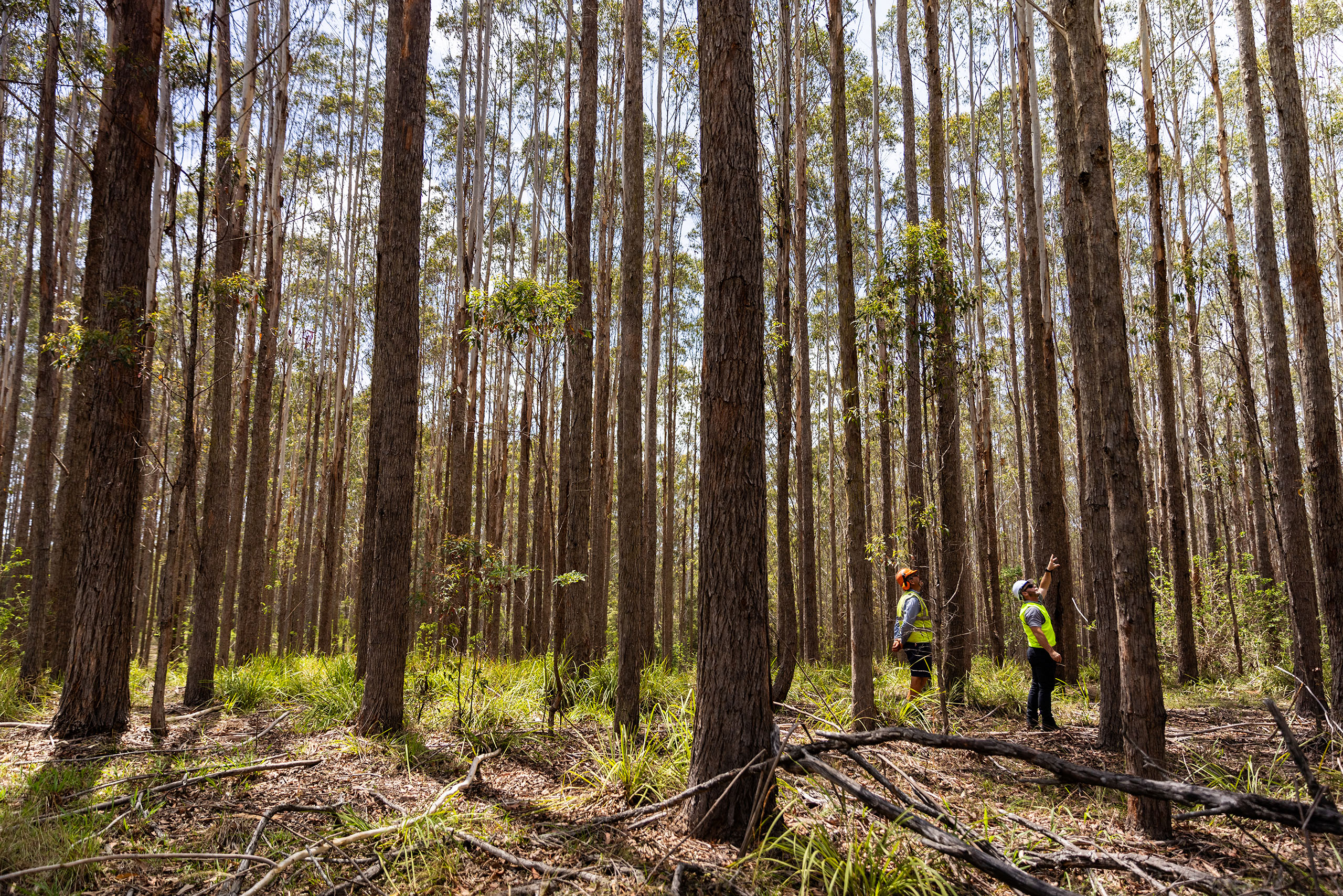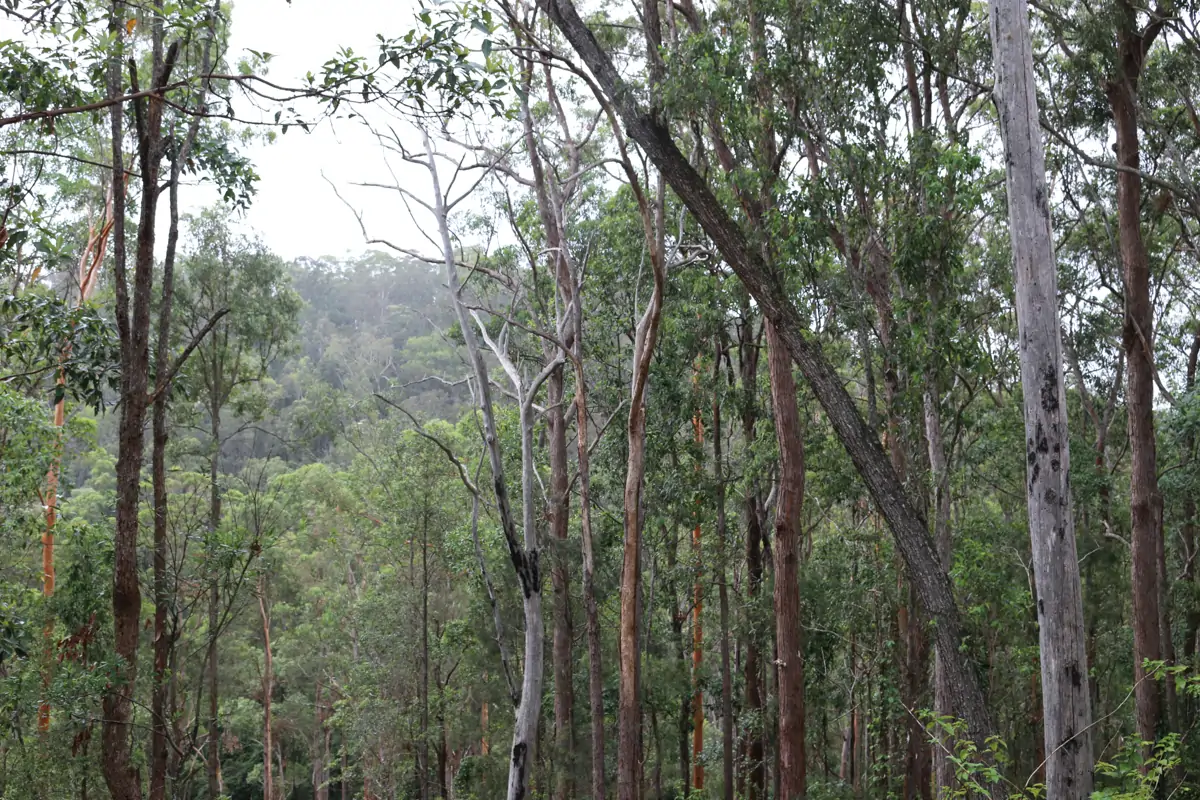Sustainable forest management extends beyond timber harvesting. For many private landowners, it marks the beginning of active forest stewardship. While some forests may require minimal care post harvest, most benefit significantly from proactive management and post-harvest forest care. As forest stewards, understanding how your forest responds to harvesting and addressing common health concerns is crucial.
This guide, tailored for NSW North Coast landowners, covers essential post-harvest forest care, monitoring and management strategies.
1. Forest Monitoring
In the first 2-3 years post-harvest, conduct seasonal monitoring. After this period, annual inspections should suffice. Key areas to observe include:
- Emergence of invasive plants
- Changes in tree health
- Biodiversity shifts
- Soil drainage alterations
- Water quality changes

2. Hazard Reduction Burns for a Productive Forest
Hazard reduction burns or prescribed burns as they are also known play a critical role in forest management across Northern New South Wales. These controlled burns mitigate catastrophic bushfire risks, protect biodiversity, and maintain forest health and productivity.
Effective hazard reduction burns require meticulous planning and execution under the guidance of experienced fire practitioners, adhering to fire regulations. As of May 2022, fire management was been incorporated into the PNF Code of Practice, recognizing its importance in active forest management.
Key considerations for hazard reduction burns include:
- Weather conditions
- Community impact
- Environmental protection
- Regulatory compliance
For private landowners sharing boundaries with neighbours or state forests, planning a hazard reduction burn can be challenging. At Sustainable Forest Management, we partner with experienced fire practitioners to simplify the process and support ongoing forest stewardship.
Useful resources for hazard reduction burns:
- NSW Rural Fire Service Bush Fire Hazards
- NSW Rural Fire Service Hazard Reduction Burning Standards for Private Landholders
- Cool Mosaic Burning Workshops in the Clarence Valley
- SFM Blog: The Science Behind Light Burning

3. Weed Management
Post-harvest improved forest access often facilitates better weed management. During harvest operations, we report on any invasive plant species encountered.
Weed control is crucial after harvesting, as invasive species can quickly take over cleared areas. Common problematic weeds in NSW include:
- Lantana: Forms dense thickets, reduces pasture productivity, increases fire fuel, and is toxic to livestock (Weed Management Guide).
- Miconia Calvescens: Native to Central and South America, are small trees that have been found to grow between 6-12 metres tall in NSW, subject to ongoing eradication efforts in the Tweed Shire region. (NSW Weed Wise).
- Invasive pasture grasses: Can outcompete native species and alter fire regimes.

4. Maintain biodiversity and soil health
Sustainable Forest Management will ensure minimal disruption to the ecosystem, through selective harvesting, maintaining a mixed age timber stand, whilst minimising soil disturbance and compaction.
Post-harvest strategies to promote biodiversity and soil health include:
- Leaving woody debris on the forest floor for nutrient cycling, erosion protection, and habitat creation
- Strategically retaining some residual timber to reduce fire risk and create firebreaks
- Allowing natural regeneration where appropriate to support native species regrowth
5. Support for Landowners

NSW Local Land Services dedicated Farm Forestry Department offers free advice through face-to-face consultations and online resources. Sustainable Forest Management also provides ongoing forest management advice to support long term forest health.
Are you a private native forest owner? Now is the time to embrace sustainable forest management practices. By doing so, you can preserve biodiversity, minimise environmental impact, and meet the growing demand for responsibly sourced timber.
Connect with Sustainable Forest Management today. As leaders in sustainable management of private native forests and plantations across NSW North Coast, we offer free assessments and valuations of your forest. Contact us at 1300 367 378 to start your journey towards sustainable forest stewardship.



